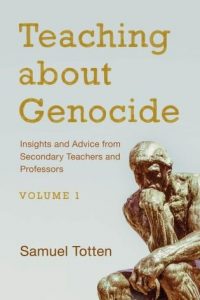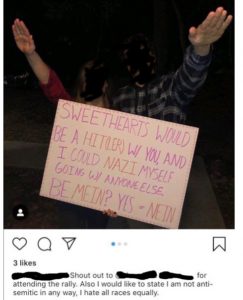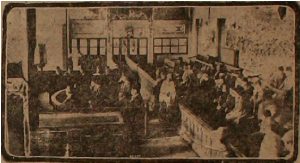Situated adjacent the National Mall in Washington D.C., the United States Holocaust Memorial Museum (USHMM) dominates the landscape of American Holocaust consciousness, remembrance, and education. On an elevator ride to the sixth floor and the start of the permanent exhibit, visitors to the museum watch a 15-second-long video showing footage of American soldiers encountering one of the concentration camps in 1945. In a retrospective voiceover, one soldier reflects on his initial shock at seeing the horrors of the camp: “We had come across something and were not sure what it was – a big prison of some kind. There were people running all over: sick, dying, starved people. You can’t imagine it; things like that don’t happen.” This video foreshadows the incomprehensibility of the Holocaust that visitors are about to witness in the permanent exhibit. The video also serves to perpetuate an American Holocaust myth; the myth that Americans had little to no knowledge of the Holocaust until the reporting of the liberation of the camps in 1945. For, as the myth goes, had Americans known about the atrocities, surely, they would have done something to speak out, to collectively, publicly condemn the mass murder of European Jewry. Though it is entirely possible that this individual soldier may not have known about the Nazi camps, the opening of Dachau in 1933, the persecution and plight of Germany and Europe’s Jews, and the ultimate extermination of millions were widely reported in the New York Times and local papers across the country. A recently-opened exhibit at the USHMM, Americans and the Holocaust, seeks to examine what ordinary Americans knew about the Holocaust in the 1930s and 40s.
more...





